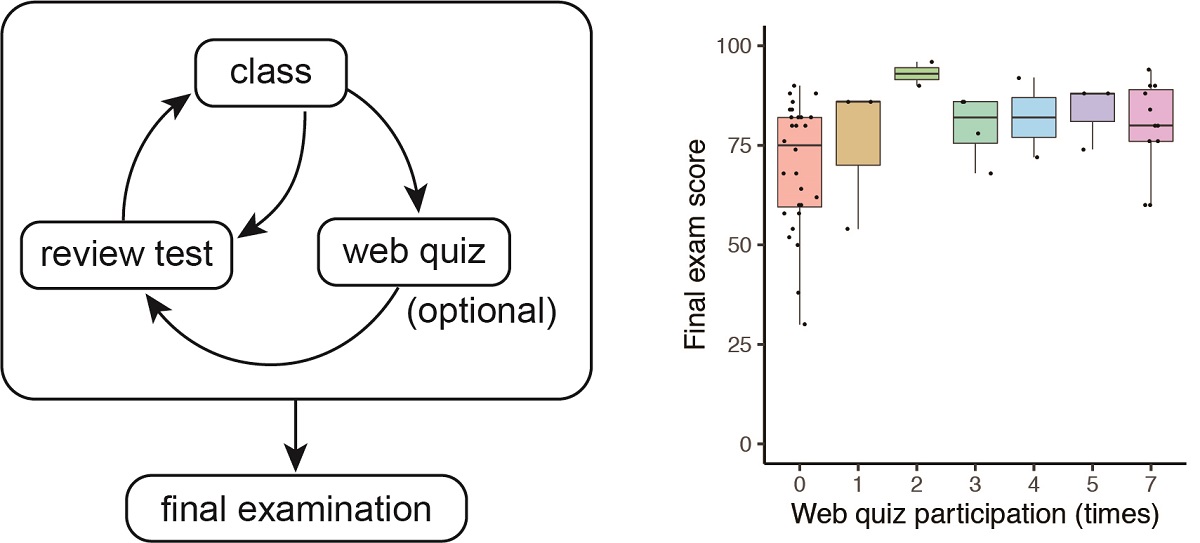Active participation of students is paramount not only for their learning experiences but also for their academic performance. Therefore, various methods have been developed and proven to help students achieve active learning. However, several shortcomings in these methods have been indicated as increasing students’ sense of burden and discomfort, eventually preventing them from benefiting sufficiently. This study aimed to determine the efficiency of a low-load web-based review quiz built by the researchers on Google Forms to enhance students’ reviewing habits and active class participation. Participants in this study were 53 first-year dental hygiene students in a 10-class microbiology course. After each class, all students were given the web-based quiz to prepare for a paper-based review test, which assessed the learning of the content covered in the previous classes. We analyzed the correlations between frequency of participation in the web-based quiz and the average scores of the weekly review tests or the final examination scores. Consequently, voluntary participation in the web-based quiz positively correlated with both short-term and long-term students’ learning outcomes. Through this web-based quiz during the first year of the dental hygiene program, students can develop the “self-learning attitude” needed to pass the national examination.

